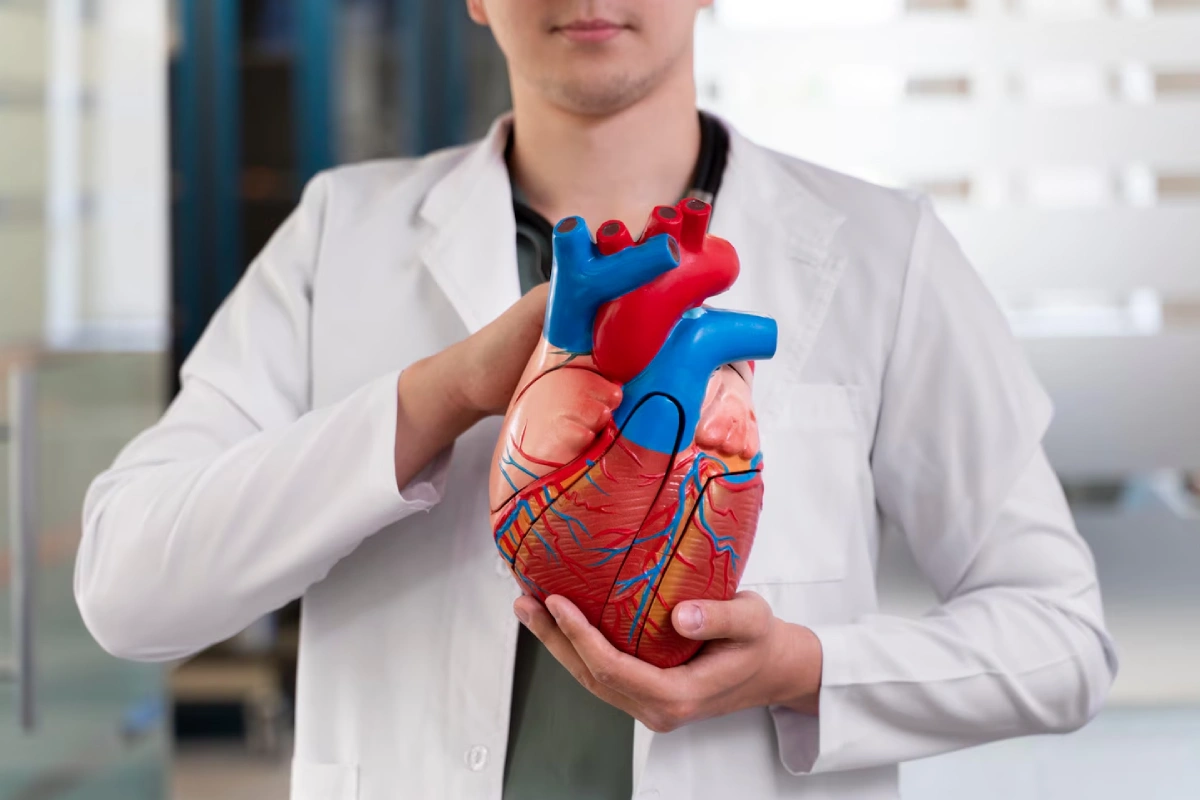Heart Valve Replacement: A Story of Hope, Humor, and Recovery

Many patients have crossed my life as a cardiac surgeon. There is one patient, though, who reminds me daily how resilient the human spirit can be. This one particular experience of aortic surgery in India has left a significant mark in my life.
She is a lively and quick-witted young woman who has been a real joy to work with through all her challenges. She jokingly says, “I will kill your valve,” there is much more to her story than a normal medical case.Even in remission, her medical problems did not end. She proceeded with immunotherapy, but suddenly, she had an unexpected problem: difficulty breathing.
Heart Valve Dilemma
While her lung cancer therapy undoubtedly had an effect on her breathing, it was not the only factor. Her aortic valve had constricted, and that was the main problem. This problem, known as aortic stenosis, impairs her heart’s ability to pump blood efficiently.
At this time, I was asked to replace her valve. Many patients consider heart valve replacement to be a normal surgery, but it was not for her. There are two types of heart valves: mechanical and tissue. Each type of heart valve replacement surgery has advantages and disadvantages, particularly for patients with complicated medical histories, such as hers.
Mechanical Heart Valves: These valves are most suitable for the younger patient population since they have the durability to last several decades. However, they do mandate the patient take blood thinners to prevent clotting, which can be somewhat of a management challenge since too much thinning leads to dangerous bleeding and too little thinning results in clots, strokes, or heart attacks.
Tissue Heart Valves: These are made from animal tissue. A good option for older patients or those with a limited life expectancy. These don’t require blood thinners after the initial months but tend to deteriorate faster; often, within 10 to 20 years, they aren’t a suitable choice for younger patients.
Given her age and the necessity to avoid blood thinners, which could interfere with her cancer therapy, I chose a tissue valve. This would provide her with several years of high-quality living free of the hazards associated with blood thinners.
A Positive Outcome: Better Health and Unmatched Humor.
The procedure was successful. A few days later, she felt much better and could breathe more easily. The next year, she returned to my clinic with a smile, saying, “I’m going to live long enough, if nothing else, to kill your valve.” She had adopted the heart valve as part of her ongoing story of endurance and humour. She has been coming to me every year since then, not only for heart health updates but also to discuss her cancer treatment progress.
As of now, she has remained cancer-free for more than three years and is considered to be in remission. Every year, when she comes, I hear her chirpy words: “I’m going to kill your valve!” Now, seven years later, it seems that her heart and the valve I had implanted are working together in harmony – living happily ever after. As a heart doctor in Delhi, this case remains etched in my memory till date.
A Lasting Legacy of Hope and Health.
This year, when I reviewed her reports and checked her valve, everything looked fine. She’s again doing great, and the valve is healthy, cancer-free now that she is declared cured. I told her jokingly, “The valve seems to have married your heart and is living happily ever after.” She answered with her humor, “I will still kill it!” I said to her, “You may not be able to do that.”
When she asked why, I told her, “Your metabolism has slowed down, and the valve is doing so well that your chances of damaging it are progressively reducing. You may never be able to kill it!” We both burst out laughing as we looked forward to another year of good health and cheerful visits.
Conclusion: A Message of Resilience and Recovery to the Heart
That journey this patient is showing reminds me of perseverance, laughter, and hope. For one diagnosed with cancer and heart disease, as well as several medical-related setbacks, there was much joy found in the simple moment on the road towards her recovery.
Her tale is one of many much-needed reminders of the great success that occurs with heart valve replacement surgery and that individualized care can make all the difference in a complex patient history. If you or a family member are dealing with similar situations, it’s essential to understand that proper treatment and a positive attitude can make your journey smoother. The journey to a better tomorrow can be filled with hope, laughter, and anticipation of a brighter tomorrow.
Contact me for any query or any requirements about your interest in heart valve replacement surgery, aortic heart valve replacement and other cardiovascular surgeries.
Copyright by Dr. Sujay Shad 2020-2022. All rights reserved.
Copyright by Dr. Sujay Shad 2020-2022. All rights reserved.


